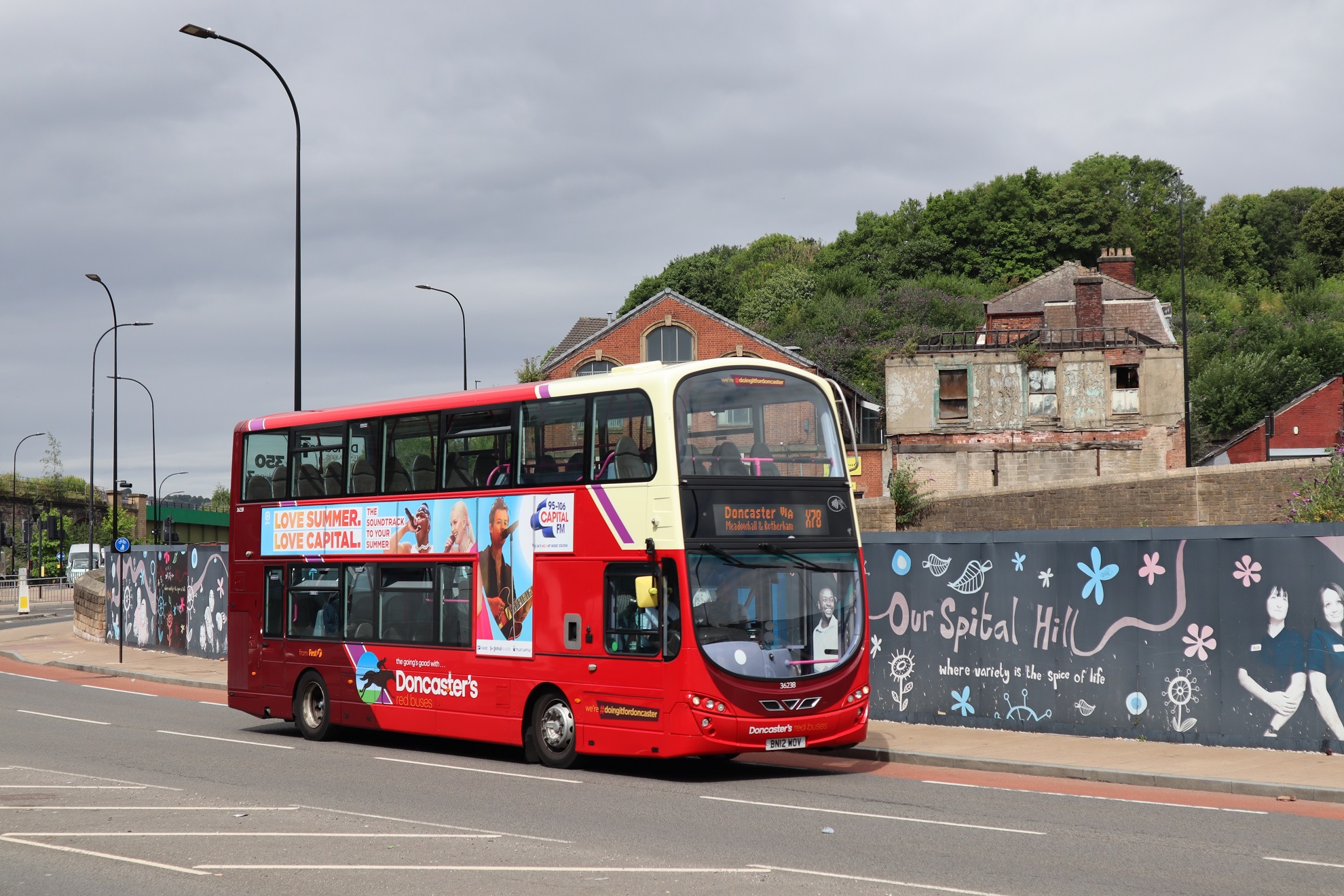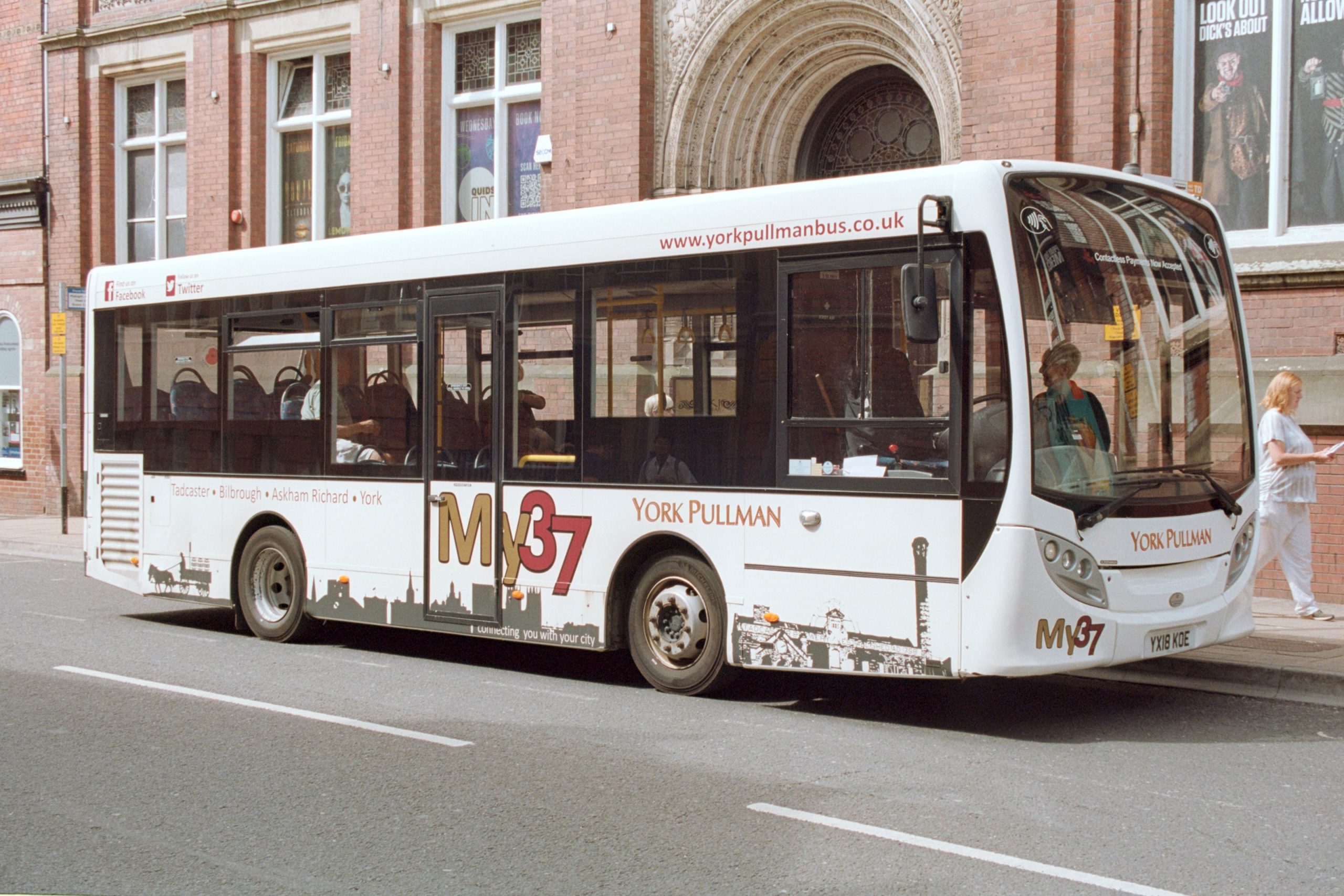Another year, another step closer to zero-emission operation for many operators. Our suppliers offer a variety of solutions to help make that transition go smoothly
The new year is often a time to reflect on a resolution for change – and for coach and bus operators, it marks another year towards the inevitable deadline of carbon reduction.
As always, routeone’s suppliers are on hand to help businesses make that resolution – whether that is by bringing the vehicles to market, or by offering technology that makes choosing and transitioning to a zero-emission fleet as painless as possible.
Coach repower on the horizon?
With the Zero Emission Coach Taskforce close to launching its second report, where it is expected to outline solutions for the transition to zero-emission vehicles, questions still remain over whether battery-electric, hydrogen fuel cell-electric, or a combination of both technologies, are expected to deliver the best solution for the decarbonisation of long-distance coach services.
One supplier that expects to bring a novel solution to market later this year is repower specialist Equipmake.
Founder and Managing Director Ian Foley (pictured, below) says the company has been approached by both inter-city and urban coach operators for a solution following its repower work with buses, which recently included the high-profile debut of a battery-electric Wrightbus New Routemaster at Euro Bus Expo.
The concept has been considered for tri-axle coaches, where battery storage is placed in the existing engine bay.
We looked at a couple of different coaches, and it looks very feasible,” Ian reveals. “Feasibility studies show we can repower an existing coach, not use any of the existing luggage capacity as battery storage, and maintain the weight within the axle weight limits while having a reasonable range – at least 150 miles.”
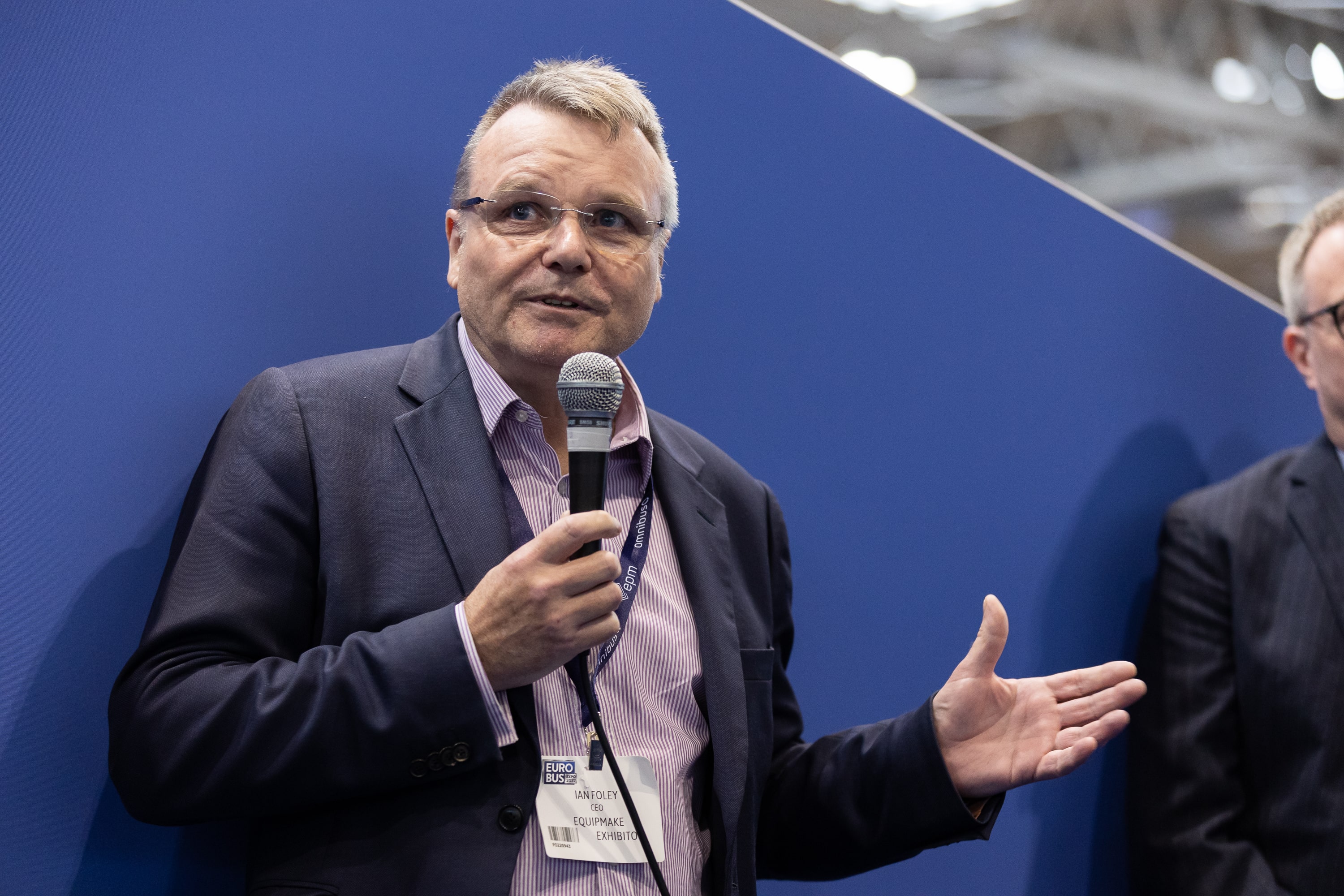
An interesting point for zero-emission coach repower, according to Ian, is the potential for opportunity charging. He believes that makes a huge difference in the feasibility of the concept. “With coach, there are certain operations where it is possible during the day – for example, where a coach has a 30-minute wait between its destination and a return journey – that an opportunity charge at 100kW can add significantly to the daily range.”
Like with bus, Equipmake acknowledges that no one size will fit all and that there will be coach operations where repower is “not suitable”. But it counters that with the belief that a significant number of coach journeys will be suited if the option for opportunity charging becomes available, and that its ambitions for repower are being driven by market pull. “That’s pretty exciting for us,” he says. “We think we are pretty close with one operator to making the debut, and later this year we expect that we will be able to demonstrate our first coach repower.”
 Making the transition and operation
Making the transition and operation
Vehicles are just one component of making the transition to azero-emission operation. A robust structure and framework, backed up by expertise, is needed to ensure such a shift goes smoothly.
BetterFleet (an Evenergi company) has been designed to provide a best-practice software-based framework for transitioning and managing zero-emission bus fleets and their associated infrastructure. It delivers a cost-effective, fast, and simple approach that “sets operators off on the right path”, providing powerful decision-making tools for an organisation’s teams and partners.
“BetterFleet places a key focus on infrastructure assessment in order to reduce your upfront costs and streamline engagements with grid companies (DNOs),” a spokesperson says. “We do this by optimising the electricity grid connection required at your depot, while also providing detailed yearly energy consumption and power capacity profiles for each bus, route/service, and depot.
“This helps you determine exactly how much power capacity is needed and at what point in time you will need to have the capacity installed at your site.”
In its experience working with operators, transport authorities and DNOs in the UK, BetterFleet reveals this is invaluable data that will help operators better engage with their partners, including local grid distribution companies, to secure a grid connection, ensuring power is available for fleets at the right time and cost.
“A unique aspect of BetterFleet is that it offers a dynamic approach to planning and management of your fleet and infrastructure by giving you the ability to continuously iterate assumptions – such as understand the impact of different chargers on your electric bus battery life, or the cost implications to your services – and optimise your network so it can adapt as the market continues to evolve,” it adds.
BetterFleet says it allows operators to not only improve the performance of their fleet and infrastructure as they move to zero emissions, but also enable them to accurately and cost effectively analyse emerging opportunities – whether that is new technologies, new suppliers or partners, or even expanding an operating footprint to other regions.
Readers can sample BetterFleet’s analytics capability by using the free ZEV Comparison Tool, available on the routeone website.




















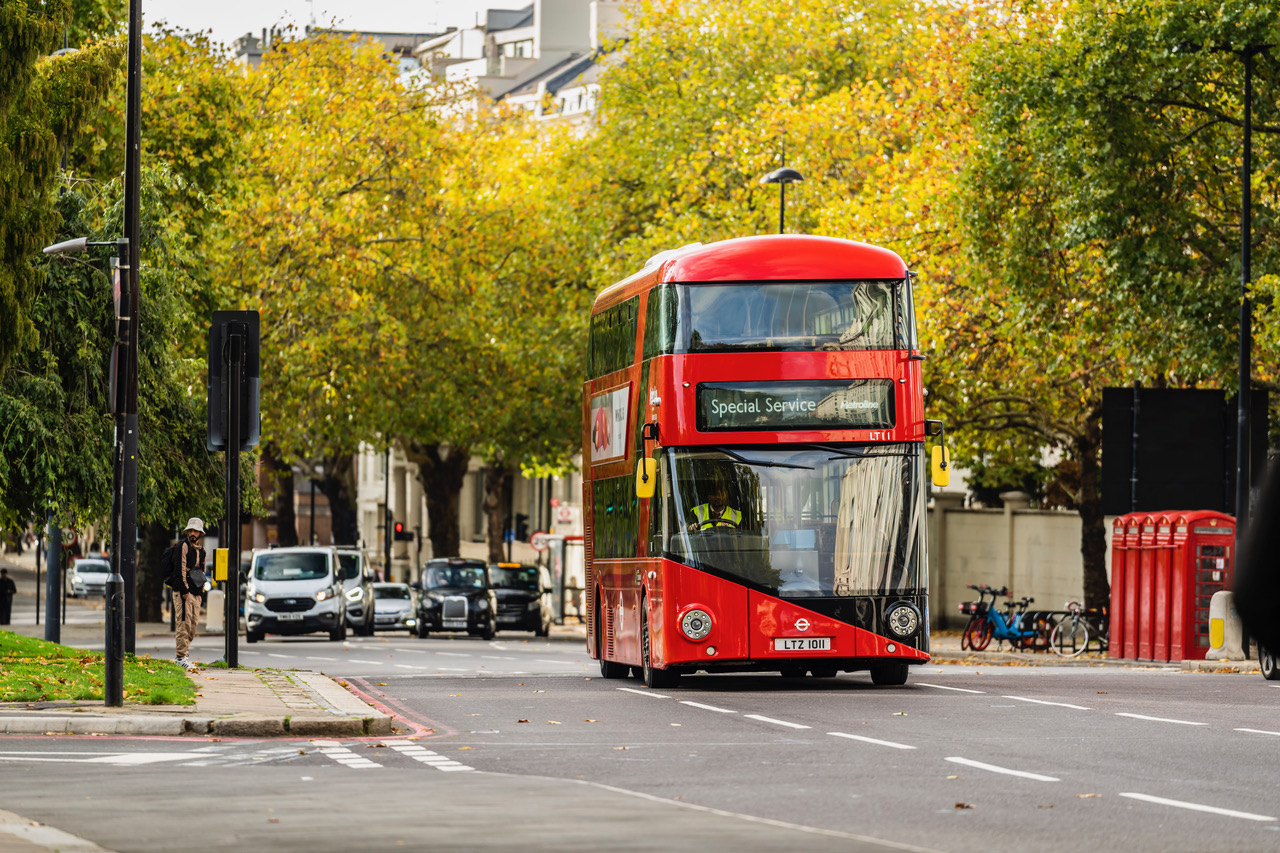
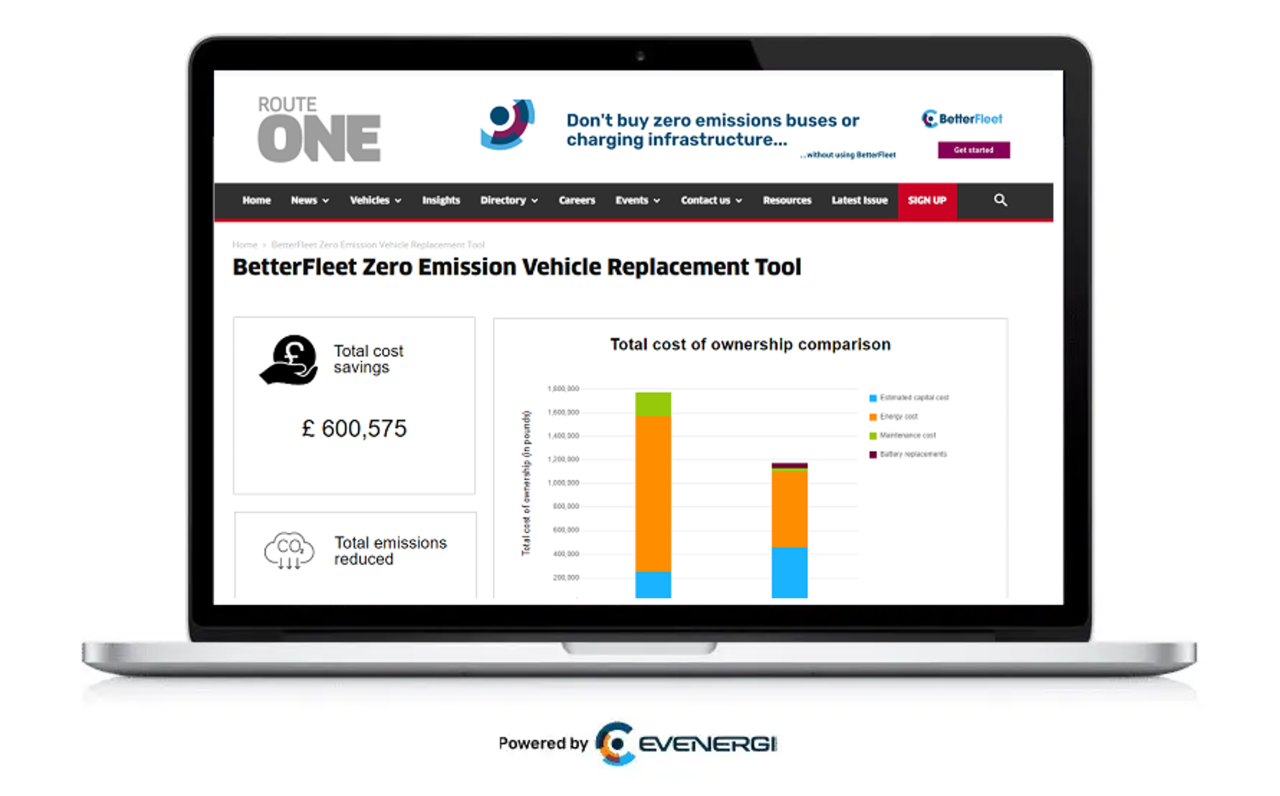 Making the transition and operation
Making the transition and operation